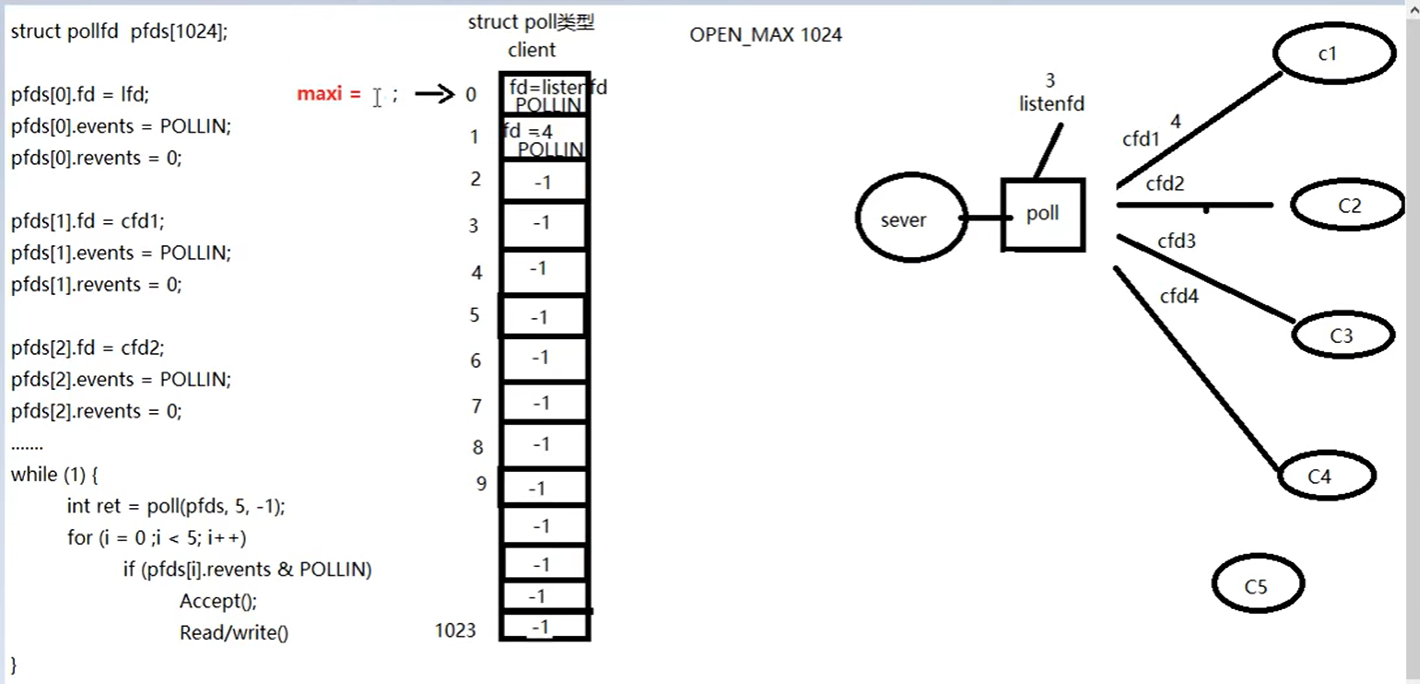1
2
3
4
5
6
7
8
9
10
11
12
13
14
15
16
17
18
19
20
21
22
23
24
25
26
27
28
29
30
31
32
33
34
35
36
37
38
39
40
41
42
43
44
45
46
47
48
49
50
51
52
53
54
55
56
57
58
59
60
61
62
63
64
65
66
67
68
69
70
71
72
73
74
75
76
77
78
79
80
81
82
83
84
85
86
87
88
89
90
91
92
93
94
95
96
97
98
99
100
101
102
103
104
105
106
107
108
109
110
111
112
113
114
115
116
117
118
119
120
121
122
123
124
125
126
127
128
129
130
131
132
133
134
135
136
137
138
139
140
141
142
143
144
145
146
147
148
149
150
151
152
153
154
155
156
157
158
159
160
161
162
163
164
165
166
167
168
169
170
171
172
173
174
175
176
177
178
179
180
181
182
183
184
185
186
187
188
189
190
191
| #include"warp.h"
void perr_exit(const char *s)
{
perror(s);
exit(1);
}
int Accept(int fd,struct sockaddr *sa,socklen_t * salenptr)
{
int n;
again:
if((n=accept(fd,sa,salenptr))<0)
{
if((errno==ECONNABORTED)||(errno==EINTR))
goto again;
else
perr_exit("accept error");
}
return n;
}
int Bind(int fd, const struct sockaddr *sa, socklen_t salen)
{
int n;
if((n=bind(fd,sa,salen))<0)
perr_exit("bind error");
return n;
}
int Connect(int fd, const struct sockaddr *sa, socklen_t addrlen)
{
int n;
n=connect(fd,sa,addrlen);
if(n<0)
{
perr_exit("connect error");
}
return n;
}
int Listen(int fd, int backlog)
{
int n;
if((n=listen(fd,backlog))<0)
perr_exit("listen error");
return n;
}
int Socket(int family, int type, int protocol)
{
int n;
if((n=socket(family,type,protocol))<0)
perr_exit("socket error");
return n;
}
size_t Read(int fd, void *ptr, size_t nbytes)
{
ssize_t n;
again:
if((n=read(fd,ptr,nbytes))==-1)
{
if(errno==EINTR)
goto again;
else
return -1;
}
return n;
}
ssize_t Write(int fd,const void *ptr,size_t nbytes)
{
ssize_t n;
again:
if((n=write(fd,ptr,nbytes))==-1)
{
if(errno==EINTR)
goto again;
else
return -1;
}
return 0;
}
int Close(int fd)
{
int n;
if((n=close(fd))==-1)
perr_exit("close error");
return n;
}
ssize_t Readn(int fd, void *vptr, size_t n)
{
size_t nleft;
ssize_t nread;
char *ptr;
ptr=vptr;
nleft=n;
while(nleft>0)
{
if((nread=read(fd,ptr,nleft))<0)
{
if(errno==EINTR)
nread=0;
else
return -1;
}
else if(nread==0)
break;
}
}
ssize_t Writen(int fd, const void *vptr, size_t n)
{
size_t nleft;
ssize_t nwritten;
char *ptr;
ptr=(char *)vptr;
nleft=n;
while(nleft>0)
{
if((nwritten=write(fd,ptr,nleft))<=0)
{
if(nwritten<0&&errno==EINTR)
nwritten=0;
else
return -1;
}
nleft-=nwritten;
ptr+=nwritten;
}
return n;
}
ssize_t my_read(int fd, char *ptr)
{
static int read_cnt;
static char *read_ptr;
static char read_buf[100];
if(read_cnt<=0)
{
again:
if((read_cnt=read(fd,read_buf,sizeof(read_buf)))<0)
{
if(errno==EINTR)
goto again;
return -1;
}else if(read_cnt==0)
return 0;
read_ptr=read_buf;
}
read_cnt--;
*ptr=*read_ptr++;
return 1;
}
ssize_t Readline(int fd, void *vptr, size_t maxlen)
{
ssize_t n,rc;
char c,*ptr;
ptr=vptr;
for(n=1;n<maxlen;n++)
{
if((rc=my_read(fd,&c))==1)
{
*ptr++=c;
if(c=='\n')
break;
}else if(rc==0)
{
*ptr=0;
return n-1;
}
else
return -1;
}
*ptr=0;
return n;
}
|












